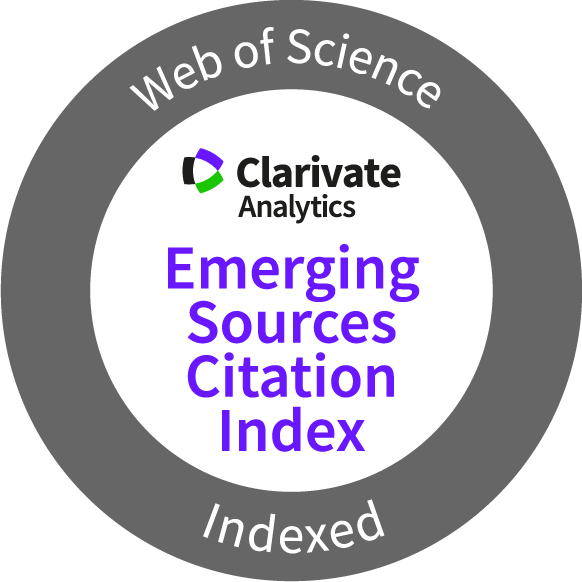This Article Volume 5 Issue 2
First published December 2015, doi : 10.7187/GJAT972015.05.02
Publisher Kolej Universiti Islam Sultan Azlan Shah, Perak, Malaysia.
قضية الشر في الخلاص المسيحي: دراسة في منظور علم الأخلاق الإسلامي
Issue of Salvation in Christianity: A Study in the Perspective of Islamic Ethics
Syed Mohammad Hilmi, S. A. R., Masitoh, A., Jamil, H., Abdulnaser, S.
تعتبر عقيدة الخلاص هي العقيدة الأساسية التي تقوم عليها أغلب العقائد المسيحية كالخطيئة والصلب والفداء، وتنطلق هذه العقيدة كسائر الأديان التي تعتقد بها بأن الشر قضية أساسية في الكون وتعتمد عليها في تصورها للعالم والإنسان، وأن الدين جاء للخلاص من هذا الشر. وعقيدة الخلاص في المسيحية هي ظهور المخلص (يسوع المسيح) الذي يفتدي بنفسه ليُكفّر عن الخطيئة الأولى التي أحالت العالم إلى شر ونسبت إلى الرب الشر، وغيرت من طبيعة الإنسان الأول الكاملة لتحيله إلى طبيعة شَريِّة. بينما الإسلام ينظر إلى أن الأصل في الإنسان الخير وليس الشر والأصل فيه البراءة وليس الإثم، ويفرّق الإسلام بين الفطرة وهي مصدر الخلق الحسن والغريزة التي تنشأ مع النفس للحفاظ عليها والتي بانحرافها يُحجب الخلق الحسن ليأتي بديلاً عنه الخلق السيء، والتي بسببها كانت الخطيئة الأولى. وبناء على هذه المفاهيم الأخلاقية يدعو
The doctrine of salvation is considered as a central pillar in Christian’s belief, in which underlying most of the fundamental teachings in Christianity such as the doctrines of original sin, redemption and Crucifixion. The notion of salvation – in Christianity and other religions that have faith in it - is stemmed from the belief that evil is a vital issue in this universe, whence it develops view and perception towards man and universe, and the belief that religion came to safe and free man from the evil. The doctrine of salvation in Christian faith, is the saving of the soul from sins and its consequences in general and original sin in particular, and is made possible by the sacrificial death of Jesus Christ by crucifixion.
Issue of Salvation in Christianity: A Study in the Perspective of Islamic Ethics
Syed Mohammad Hilmi, S. A. R., Masitoh, A., Jamil, H., Abdulnaser, S.
الملخص
تعتبر عقيدة الخلاص هي العقيدة الأساسية التي تقوم عليها أغلب العقائد المسيحية كالخطيئة والصلب والفداء، وتنطلق هذه العقيدة كسائر الأديان التي تعتقد بها بأن الشر قضية أساسية في الكون وتعتمد عليها في تصورها للعالم والإنسان، وأن الدين جاء للخلاص من هذا الشر. وعقيدة الخلاص في المسيحية هي ظهور المخلص (يسوع المسيح) الذي يفتدي بنفسه ليُكفّر عن الخطيئة الأولى التي أحالت العالم إلى شر ونسبت إلى الرب الشر، وغيرت من طبيعة الإنسان الأول الكاملة لتحيله إلى طبيعة شَريِّة. بينما الإسلام ينظر إلى أن الأصل في الإنسان الخير وليس الشر والأصل فيه البراءة وليس الإثم، ويفرّق الإسلام بين الفطرة وهي مصدر الخلق الحسن والغريزة التي تنشأ مع النفس للحفاظ عليها والتي بانحرافها يُحجب الخلق الحسن ليأتي بديلاً عنه الخلق السيء، والتي بسببها كانت الخطيئة الأولى. وبناء على هذه المفاهيم الأخلاقية يدعو
الإسلام الإنسان العودة إلى طهارة روحه للوصول إلى الفلاح في الآخرة.
الكلمات المفتاحية: المسيحية، الخلاص، الشر، الإنسان، العالم.
AbstractThe doctrine of salvation is considered as a central pillar in Christian’s belief, in which underlying most of the fundamental teachings in Christianity such as the doctrines of original sin, redemption and Crucifixion. The notion of salvation – in Christianity and other religions that have faith in it - is stemmed from the belief that evil is a vital issue in this universe, whence it develops view and perception towards man and universe, and the belief that religion came to safe and free man from the evil. The doctrine of salvation in Christian faith, is the saving of the soul from sins and its consequences in general and original sin in particular, and is made possible by the sacrificial death of Jesus Christ by crucifixion.
The original sin is attributed to the Lord of Evil and it had transmitted this universe into evil, and change the nature of man, who is born free from sin into evil. Conversely, the religion of Islam views that man is originally good and is born in the state of "fitrah”, innocent and free from sin. Islam differentiates between the idea of "Fitrah”, the source of good behaviour and "Gharizah”, the instinct which arise together with human soul and leads mankind to bad moral conduct whenever it is misled or deviated. It is believed that the original sin committed by Adam due to this deviation. Based on this understanding, Islam enjoin man for self-purification in order for him to succeed in the hereafter.
Keywords: Christianity, Salvation, Evil, Mankind, Universe
References
Abu Zahra, (2006), Mohadarat fi Al-Nasraniayyah, Egypt: Dar Al-Fikr Al-Arabi.
Al-Faruqi Ismail Ragi, (1967). Christian Ethics, McGill University Press, Montreal.
__________________, (1992). Al Tawhid : Its Implication for Thought and Life, USA, The International Institute of Islamic Thought, Library of Congress Catalogiging-in-Publication Data
Darraz, M. A. (1998), Dustur al-Akhlaq fi al-Quran, 10th Edition, Maktabah al-Risalah, Egypt.
Keywords: Christianity, Salvation, Evil, Mankind, Universe
References
Abu Zahra, (2006), Mohadarat fi Al-Nasraniayyah, Egypt: Dar Al-Fikr Al-Arabi.
Al-Faruqi Ismail Ragi, (1967). Christian Ethics, McGill University Press, Montreal.
__________________, (1992). Al Tawhid : Its Implication for Thought and Life, USA, The International Institute of Islamic Thought, Library of Congress Catalogiging-in-Publication Data
Darraz, M. A. (1998), Dustur al-Akhlaq fi al-Quran, 10th Edition, Maktabah al-Risalah, Egypt.
Ibn Sina, (1952). Al-Shifa’. Maktabah Al-Ameeriah, Cairo.
Ibn Khaldun, (2004). Al-Muqaddimah, 1st. Edition, Dar Yarub, Beirut.
Mohd Hamdan, Moradi, & Dokoushkani, (2014). Islamic Thought and Individuals’ Actions in the Built Environment, Global Jurnal of Al-Thaqafah, 4(2):61-71.
Ridha, M. R. (n.d). Aqidah Al-Salb wa Al-Fida’, Maktabah Al-mannar, Egypt.
Shalabi, A. (1988). Al-Masihiyyah, 8th Edtion, Dar al-Nahdah, Egypt.
Taha Abdul Rahman. (2000). Su’aal Al-Akhlaq, 1st. Edition, Al-Markaz Al-Thaqafi Al-Arabi, Morocco.
Mohd Hamdan, Moradi, & Dokoushkani, (2014). Islamic Thought and Individuals’ Actions in the Built Environment, Global Jurnal of Al-Thaqafah, 4(2):61-71.
Ridha, M. R. (n.d). Aqidah Al-Salb wa Al-Fida’, Maktabah Al-mannar, Egypt.
Shalabi, A. (1988). Al-Masihiyyah, 8th Edtion, Dar al-Nahdah, Egypt.
Taha Abdul Rahman. (2000). Su’aal Al-Akhlaq, 1st. Edition, Al-Markaz Al-Thaqafi Al-Arabi, Morocco.










